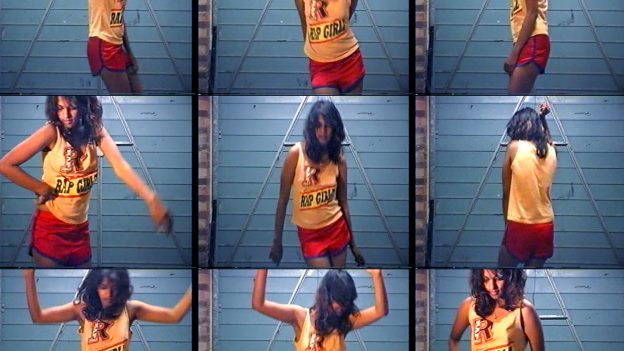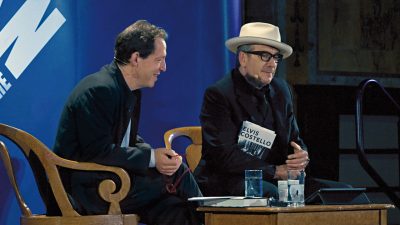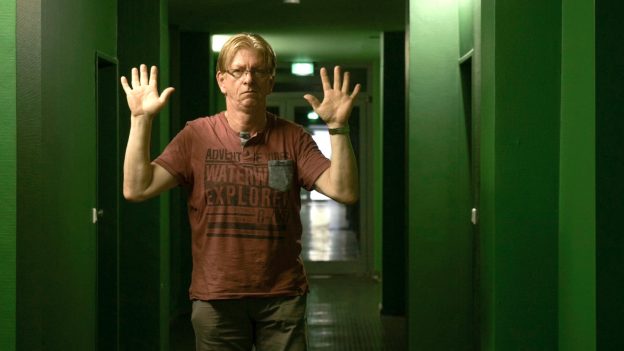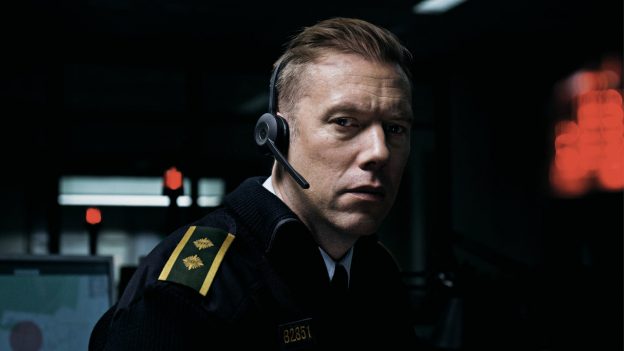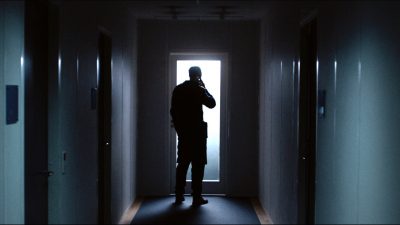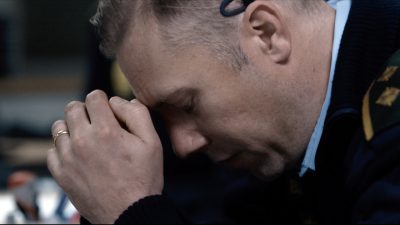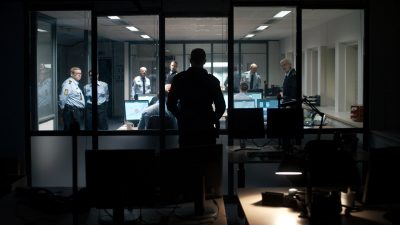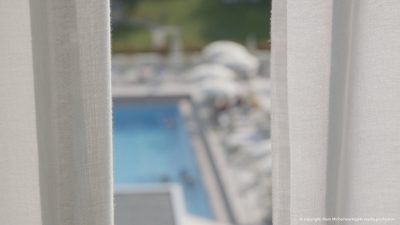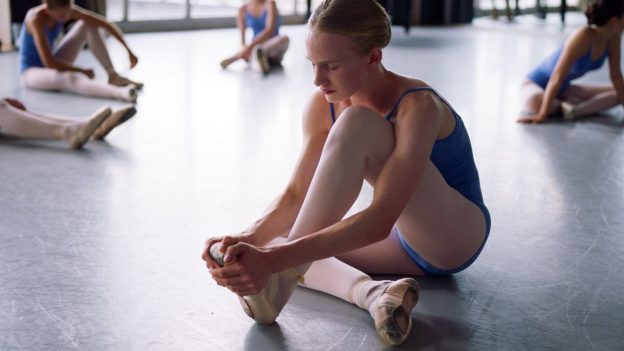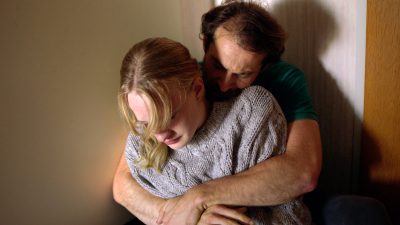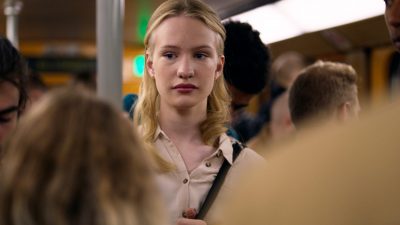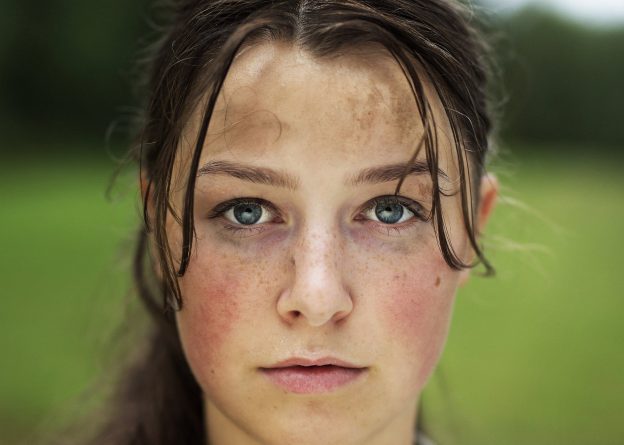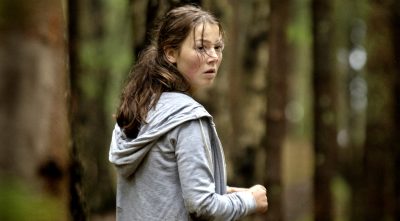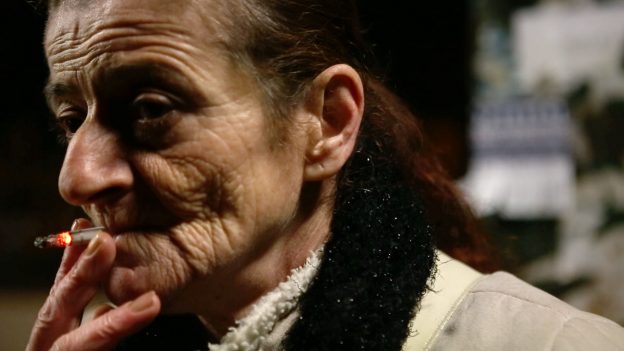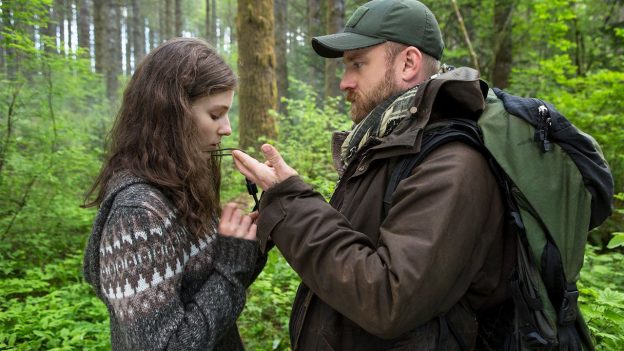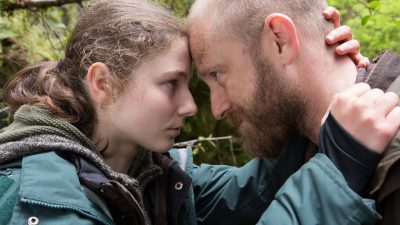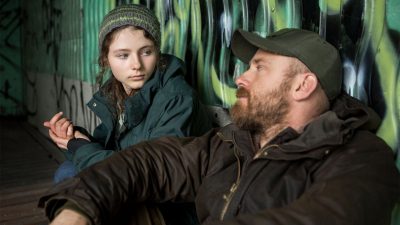Sorry, this entry is only available in Deutsch.
Vorträge, Gespräche & Filmvorführungen in der Denkerei und im fsk Kino in Berlin,
19. – 21. Oktober
Die Veranstaltung „Der Essayfilm – sichtbares Denken“ widmet sich dem Essayfilm als experimenteller Filmform zwischen Spiel- und Dokumentarfilm – jeder Abend geht mit einer Projektion im fsk Kino zu Ende. Nähere Informationen zu den Vorträgen & Gesprächen in der Denkerei finden sich unter:
https://denkerei-berlin.de/kalender/?id=1284
Filmprogramm:
VOR ALLER AUGEN (19.10.)
Wachen und Warten im unsichtbaren Bildernetz – VOR ALLER AUGEN ist eine bahnbrechende Studie zu frühen visuellen Kulturen der Kontrollgesellschaft. 40 Kameras einer Videoüberwachungsanlage beobachten das Geschehen in den Innen- und Außenräumen des Berliner ICC.
Im Anschluss findet ein Gespräch zwischen dem Regisseur Heiner Mühlenbrock und der Filmkritikerin Anke Sternborg statt.
LANGE FILMNACHT: EIN BEST OF DES ESSAY FILM FESTIVALS, LONDON (20.10.)
THE IMAGED YOU MISSED ist ein Film im Film: Der Amerikaner Arthur MacCaig war über 30 Jahre lang filmischer Chronist des Bürgerkriegs in Nordirland. Sein Sohn, der irische Regisseur Donal Foreman, hat die Geschichte des Vaters in Bildern rekonstruiert.
Mark Rappaport ist ein Pionier des boomenden Genres „Visuelle Filmkritik“. Wir zeigen drei seiner letzten Videocollagen: JOHN GARFIELD ist ein Tribut an den jüdischen US-amerikanischen Schauspieler John Garfield, „an outsider with a political perspective“. OUR STARS widmet sich dem Thema Begehren im Starsystem Hollywood. SERGEI/SIR GAY spekuliert über die latente Homosexualität Sergej Eisensteins aus der Perspektive eines fiktiven, spielerischen Ichs.
Die „Lange Filmnacht“ wird von Michael Temple, Direktor des The Essay Film Festival, London, präsentiert.
FRÜHE VIDEOARBEITEN VON JEAN-LUC GODARD: 6X2, SUR ET SOUS LA COMMUNICATION (21.10.)
„Mit Six fois deux hat Godard sechsmal zwischen den Bildern und Tönen die Fluchtlinie schöpferischen Handelns aufblitzen lassen, und mit ihr hat er das Fernsehen entführt.“ (Gilles Deleuze)
Zusammen mit Anne-Marie Miéville gründete Jean-Luc Godard Anfang der siebziger Jahre in Grenoble die Videogesellschaft „Sonimage“. Unter dem Eindruck der technischen Möglichkeiten des Videoformats entstehen zahlreiche Filmprojekte, die anstelle des Kinos das Fernsehen adressieren. Die experimentell angelegte Serienproduktion „Six fois deux [sur et sous la communication]“ (R: Godard/Miéville, 1976, 610 Min.) skizziert formal und inhaltlich neue Wege, das Fernsehen als diskursives Medium zu etablieren.
Gezeigt werden die Episoden „Photos et cie“ und „Marcel“ sowie Ausschnitte aus einem Interview, das Wilfried Reichart Ende November 1976 mit Godard in Grenoble führte. Der Vorführung geht eine Einführung von Wilfried Reichart und Thomas Helbig voraus.
Fr., 19.10., 19:30 Uhr – 21:30
VOR ALLER AUGEN
BRD, 1982⁄90, 60 Min., Regie: Heiner Mühlenbrock
Sa., 20.10., 21:00 Uhr
THE IMAGED YOU MISSED
Irland/FR/USA 2108, 74 Min., Regie: Donal Foreman
Englisch/Französisch mit englischen Untertiteln
JOHN GARFIELD
USA/FR, 2002, 9 Min., Regie: Mark Rappaport
OUR STARS
USA/FR, 2015, 27 Min., Regie: Mark Rappaport
SERGEI/SIR GAY
USA/FR, 2017, 36 Min., Regie: Mark Rappaport
Englische Originalfassungen
So., 21.10., 21:00 Uhr
PHOTO & CIE
Episode aus der TV-Serie 6X2, SUR ET SOUS LA COMMUNICATION, FR, 1976, 46 Min., Regie: Jean-Luc Godard et Anne-Marie Miéville
MARCEL
Episode aus der TV-Serie 6X2, SUR ET SOUS LA COMMUNICATION, FR, 1976, 55 Min., Regie: Jean-Luc Godard et Anne-Marie Miéville
Deutsche Synchronfassungen
2

